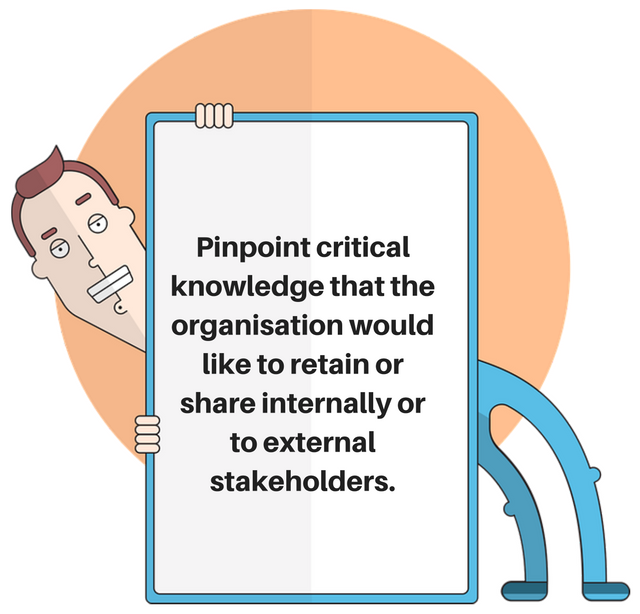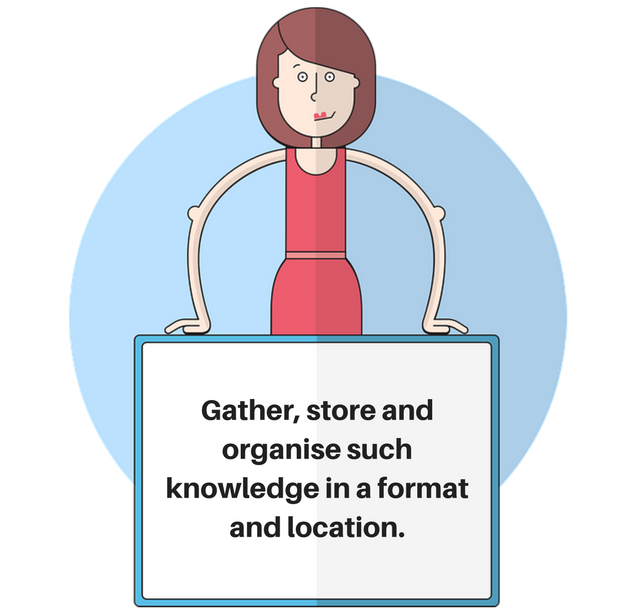Don't Do KM For the Sake of KM, Do It to Solve a Business Need

Posted by TallyFox on 21 November 2016
Behind a simple question "Why so many KM systems fail?" is an even simpler answer "Because they are not implemented to solve a business need".
There are many definitions of the term knowledge management, as it is a process that everyone executes differently.
What all definitions agree on is that knowledge management is a business process that defines the way organisations manage both documented and undocumented knowledge and the know-how their employees have about their services, products organisational systems and intellectual property.
Knowledge management consolidates the strategies and processes an organisation employs to pinpoint, capture and leverage the knowledge contained within its "memory".
Knowledge Management is more than just technology. This business process through which organisations learn to successfully integrate information technology, company culture, organisational processes and support from senior management into a single cohesive system is more than just software. It is a whole array of activities.
When it comes to defining KM activities, even though a substantial amount of variation exists, they have several common features that are necessary to all KM systems.
Regardless of the techniques and tools used, a successful KM system will:

In any KM system, the organisation must first identify which knowledge and information are crucial to its success.
To give an example, a pharmaceutical company may discover that embedded in its prior medication research lays considerable research knowledge which if properly applied, could help speed up new medication development. The first step, determining critical knowledge, is essential because it allows this company to properly structure systems, tools and processes aimed at retaining and sharing this knowledge.

Once the knowledge has been identified, this company must develop processes and acquire tools in order to collect and store this knowledge. This is where most of the mistakes happen.
To many businesses, knowledge management equals information management so they invest in knowledge databases, search retrieval tools, intranets and data mining tools not understanding that a knowledge sharing platform must contain all these features, and provide context to the knowledge stored.
They may also fail to invest in management techniques such as communities of practice, mentoring and training, but this doesn't happen that often.
The pharmaceutical company mentioned above invests is a knowledge management platform in order to institutionalise knowledge contained in prior drug research making the knowledge easy to be found and accessible to employees or external stakeholders.

If the pharmaceutical company has successfully collected, stored and organised essential company knowledge, the members of the knowledge sharing platform must be made aware of its existence and encouraged to contribute and use knowledge to make their jobs easier.
We've written an e-book on how to create a knowledge sharing community that you can download for free, and it contains valuable advice which will facilitate this part of the process.

An efficient KM system will allow its users to leverage existing knowledge. By enabling knowledge sharing and discovery across boundaries, users can drive innovation by building upon knowledge created by their colleagues.
Our pharmaceutical company uses knowledge management to allow researchers in one area of the company to use company knowledge to maximum advantage and build off of research conducted by their co-workers working on a different project.
This part of the knowledge management process can be difficult to achieve, but it is essential as it has the greatest potential to deliver real value to the organisations and allow them to solve this business need and harness the benefits of knowledge management.
The tools and processes which facilitate these needs create a successful knowledge management system.
So what is the reason why so many KM systems fail?
Many KM systems fail because they are not implemented to solve a business need. They are implemented to allow people to share more, because "it's good to share". When the KM team becomes aware of the reasons why so many employees don't share their knowledge or share irrelevant information, it is too late. Identifying a business need is what gives this process a goal, and if the KM team solves this need, it is successful.

Comments
Leave a comment